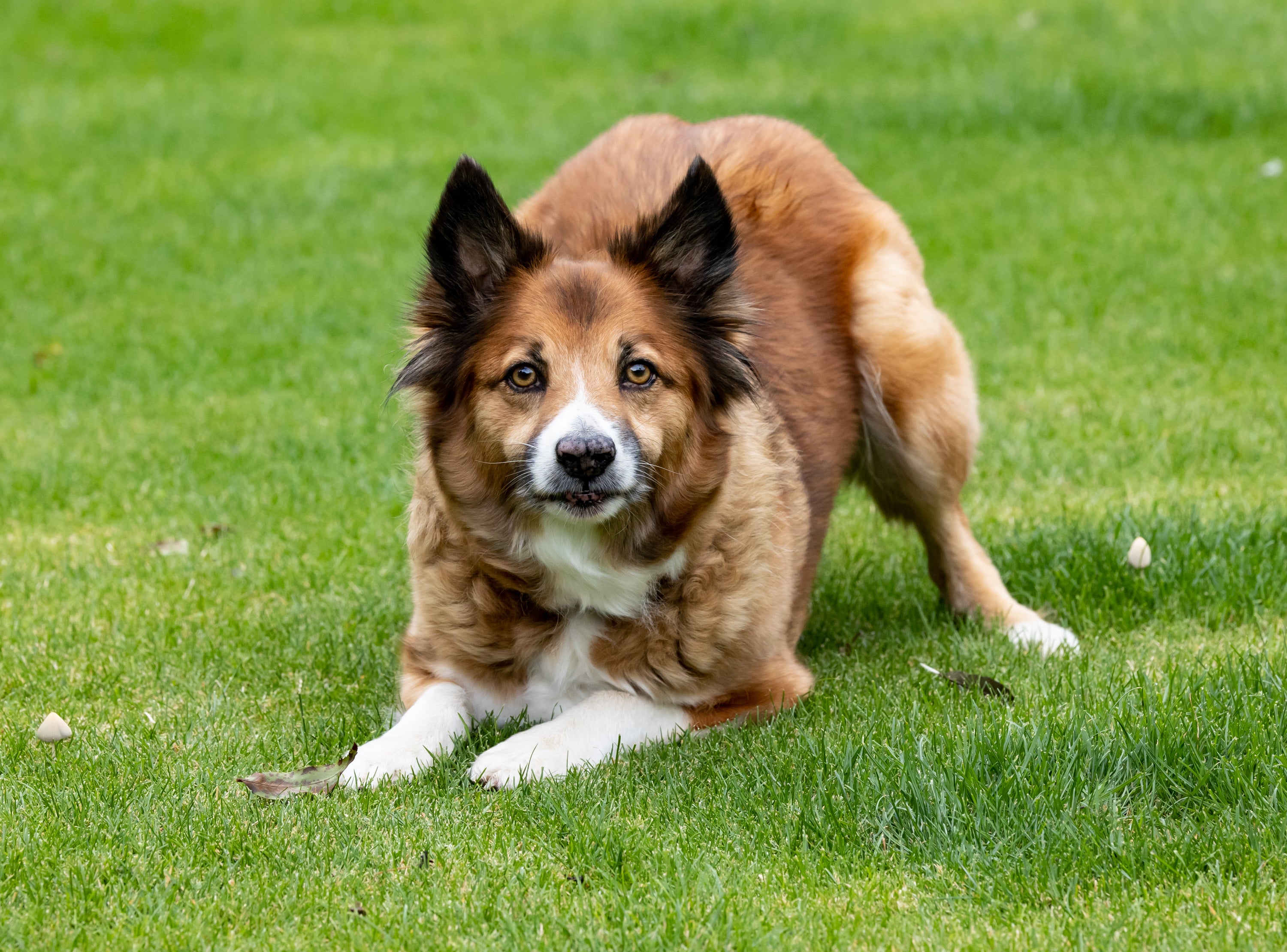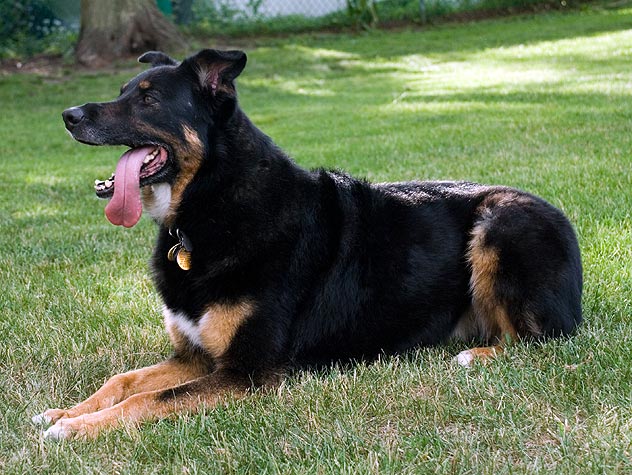Icelandic Sheepdog
With characteristic pricked ears, a double coat, and a curled tail, the Icelandic Sheepdog is a prime example of a classic Nordic herding Spitz dog. They come in long and short coats, and both are waterproof, thick, and insulating. They are derived from dogs the Vikings brought to Iceland in the 9th century. Fast learners and even-keeled, the Icelandic Sheepdog is a friend to all when well-socialized and well-trained.
Breed characteristics carousel
Learn More
Need to Know
- Dogs suitable for experienced owners
- Extra training required
- Generally healthy breed
- Enjoys active walks
- Medium dog
- Requires frequent grooming
- Chatty and vocal dog
- Welcomes everyone happily
- May be suspicious of other dogs
- May need additional training to live with other pets
- Needs a large yard in suburban or rural areas
- AKC Registered Breed

Personality
Alert and playful, the Icelandic Sheepdog loves to be right by their human’s side. They are friendly and outgoing dogs. Independent thinkers, they were bred to work and therefore can have a stubborn streak, especially if they think they know better than their owners when it comes to training. They bark when excited.
Norwegian Vikings in the 9th century brought the Icelandic Sheepdog to their native country. They were known as the “Dog of the Vikings,” and are closely related to the Karelian Bear Dog. Their first job in Iceland was as a farm dog used for herding sheep, horses, and cattle. In the Middle Ages, the dogs made their way to England where they were fashionable companions of the wealthy, even getting a mention in Shakespeare’s plays.
As their resume evolved, they began taking on other jobs such as looking for lost sheep in the snow, gathering puffins, and rounding up horses. The breed declined in the mid-1800s and was almost decimated, but there are still Icelandic Sheepdogs in Denmark, England, and America today, although they remain rare.
Friendly and loving, the Icelandic Sheepdog loves to be with their owners and make good companions for those who can devote a lot of time and attention to them. Patient, tolerant, and curious, the Icelandic Sheepdog has a sweet disposition. They are social and thrive on human contact.
Outdoor activities—preferably in the cold—can keep an Icelandic Sheepdog’s day full. They love hiking and walking, as well as play sessions and other mental stimulation activities. They can do well with herding, tracking, agility, rallying, and obedience.
While the Icelandic Sheepdog is adaptable, they do prefer households that are active and have easy access to the outdoors. They are just as happy lounging around the house, though, if that’s what their owners are up to. It’s best to have a fenced-in yard to give them plenty of space to run and explore.
The double coat of the Icelandic Sheepdog can be long or short. The dogs shed quite a bit, and even more so during the two shedding seasons. Brushing can help remove loose and dead hairs to keep the coat healthy and shiny.
While naturally friendly, early and ongoing socialization can help the Icelandic Sheepdog become a well-adjusted and well-mannered member of the family. They are eager beavers and will excel at training, especially since they love doing what their owners are doing. They can be stubborn, though, when they think they know better. Patient, gentle, and positive methods should be used.
A mellow dog except when excited, the Icelandic Sheepdog breed is loyal and loving. They do well with family life, especially with older children who can participate in their care and training. Active families are a must to give the dogs the exercise and stimulation they need.
The cost of an Icelandic Sheepdog from a breeder is significantly more than the cost of adopting one from a local shelter or rescue. The adoption fee usually covers additional items such as spaying or neutering, vaccines, and microchipping.

Learn more about feeding and caring for your Icelandic Sheepdog on Purina.
Did You Know?
- The Icelandic Sheepdog’s coat adapts to the climate they are in—it will grow thicker in colder areas and become thinner if they live in warmer areas.

